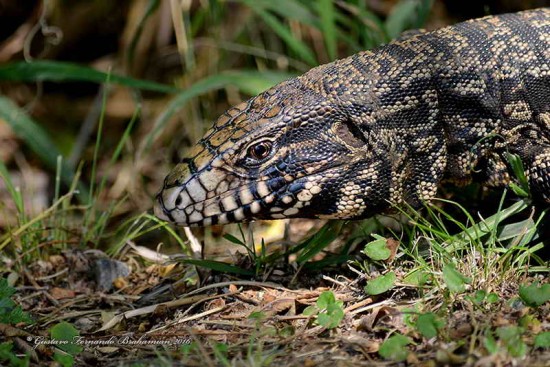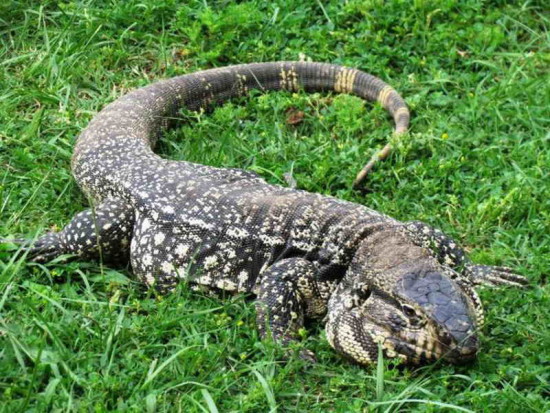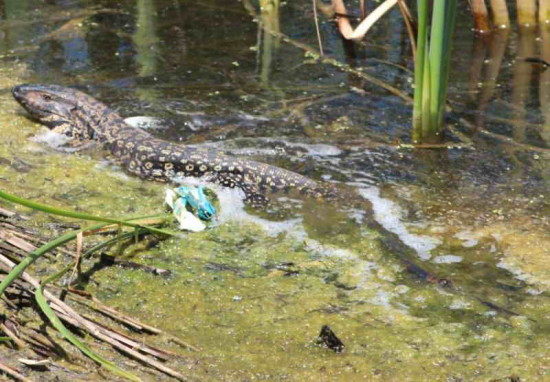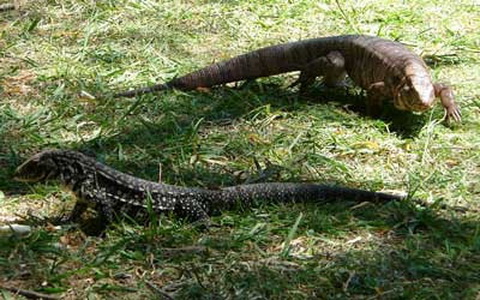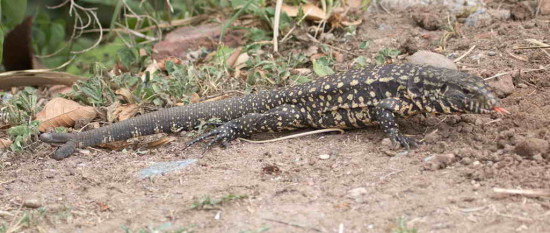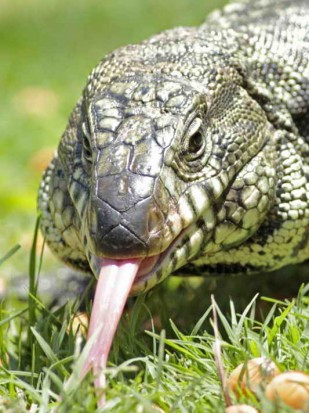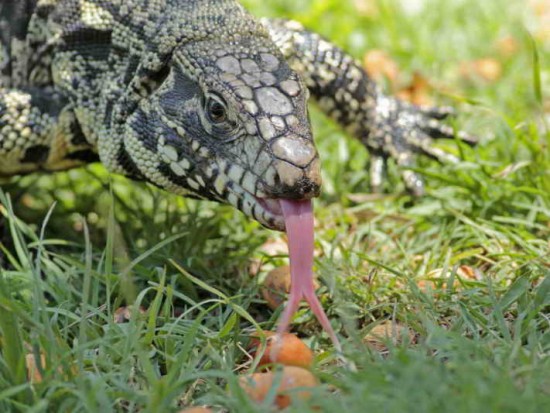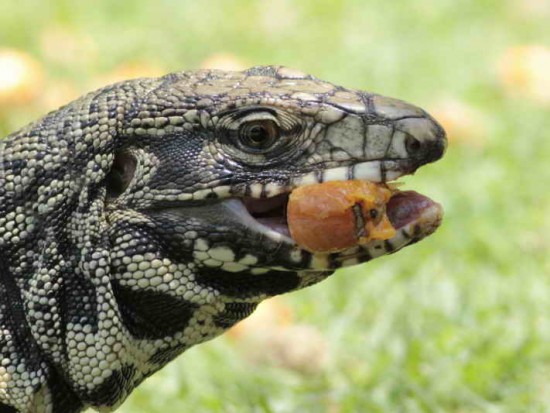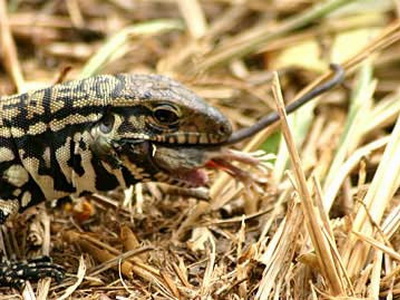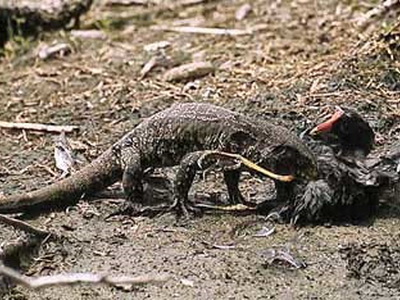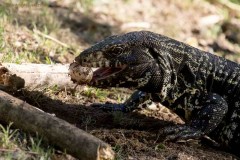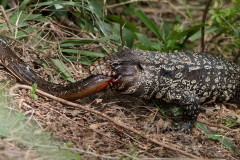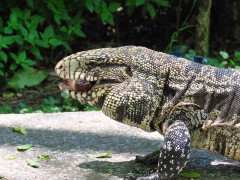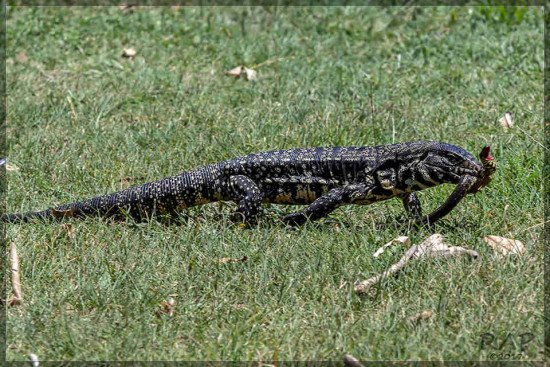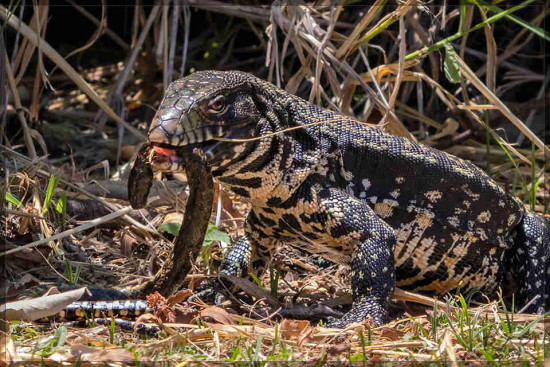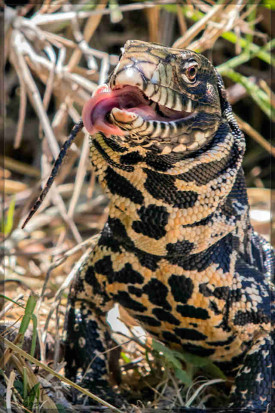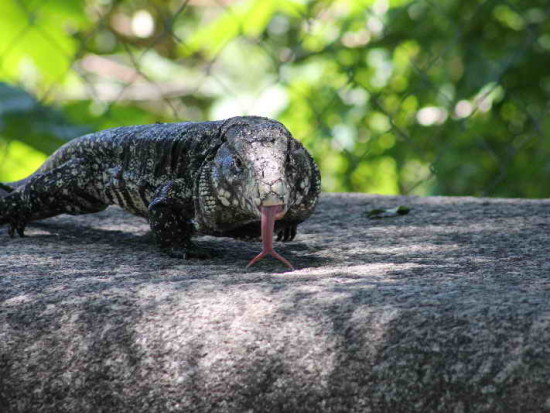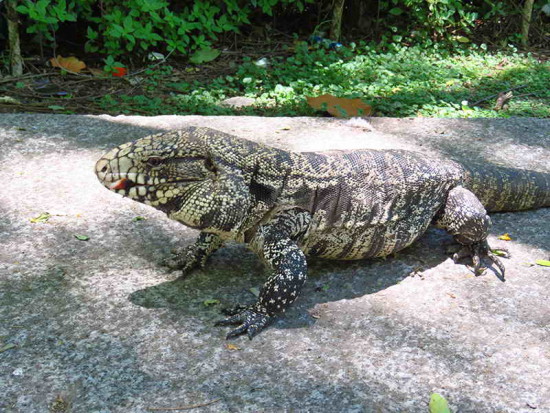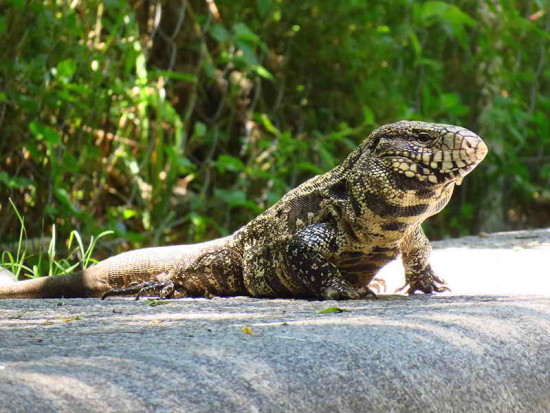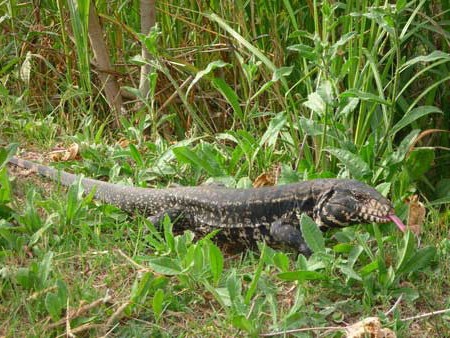Order Squamata - Family Teiidae
Black-and-white Tegu Salvator merianae
Black-and-white-Tegu Lizard Salvator merianae Syagrus romanzoffiana were scattered on the grass. Licking the air it chooses which to eat.
Mating
VIDEO VIDEO VIDEO
These three videos show the previous moments to and the mating. Some interesting displays could be associated with courtship. To cover the female with the body. To march without moving. The female moving in a circle before mating.
In family
Diet
It is omnivorous. It feeds on arthropods, insects, small vertebrates, reptiles, bird and turtle eggs and some vegetal material too.
VIDEO © RAP
The Tegu of the wall
 © José Alberto Lell
© José Alberto Lell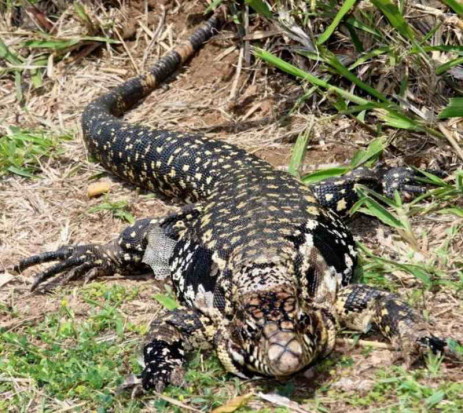 © Carlos González Ledo
© Carlos González Ledo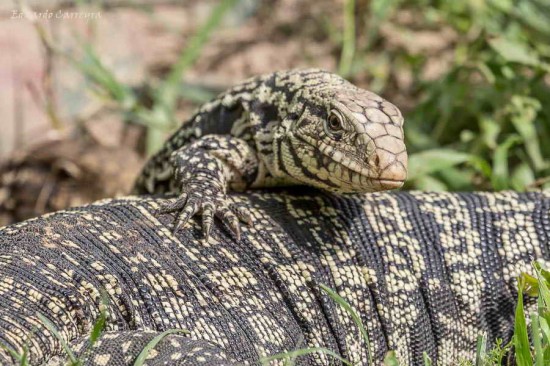 © Eduardo Carreyra
© Eduardo Carreyra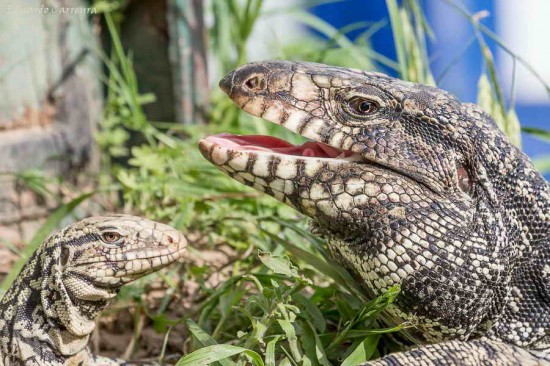 © Eduardo Carreyra
© Eduardo Carreyra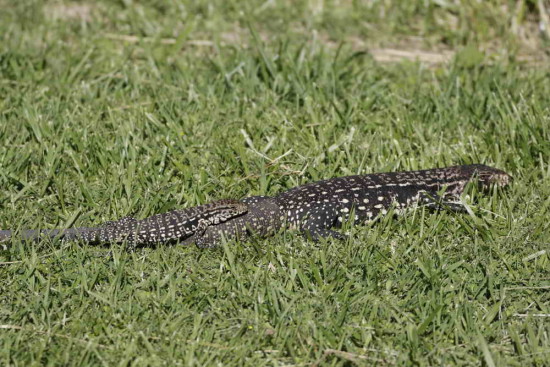 © Miguel Ángel Lucero
© Miguel Ángel Lucero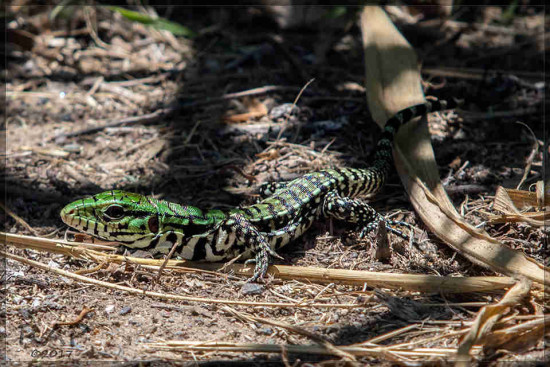 © RAP
© RAP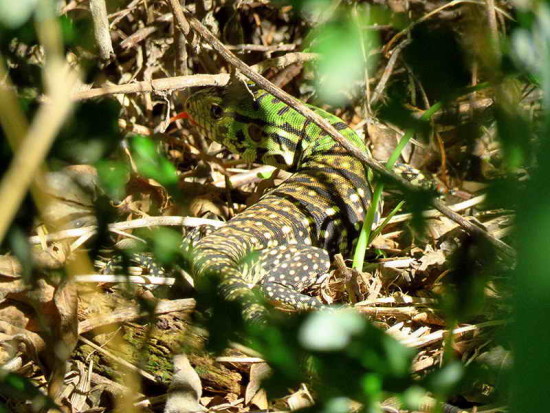 © Eduardo Cusano
© Eduardo Cusano

